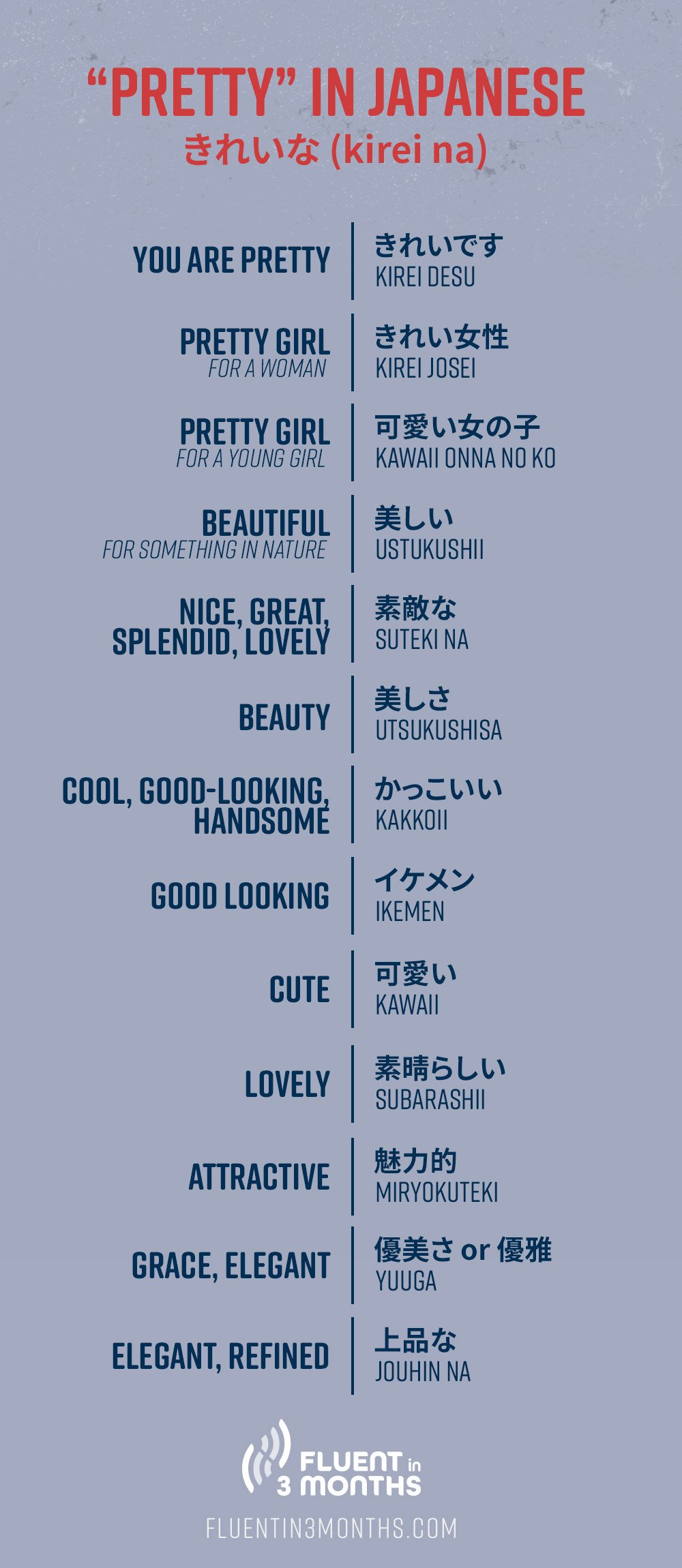
In Japanese, saying “you are beautiful” is expressed as “anata wa utsukushīdesu.” Embracing the power of language to uplift and inspire is a beautiful gesture. This simple phrase can convey admiration and appreciation in a meaningful way. Explore the nuances of expressing beauty in Japanese culture through the art of language. Let’s delve into the elegance and charm of conveying beauty through the graceful Japanese language. Beauty truly knows no bounds when spoken from the heart.
Discover How to Say “You Are Beautiful” in Japanese
Welcome to our guide on how to express admiration and beauty in Japanese. In this article, we will explore the different ways to say “you are beautiful” in Japanese, as well as delve into the cultural significance of compliments in Japan. Whether you’re planning to visit Japan or simply interested in learning a new language, expressing beauty in Japanese is a wonderful way to connect with others. Let’s dive in!
The Importance of Compliments in Japanese Culture
In Japan, giving and receiving compliments is an integral part of social interaction. Compliments are not only used to express admiration for someone’s physical appearance but also to show appreciation for their skills, talents, and character traits. It’s essential to understand the cultural context behind compliments in Japan to ensure your words are well-received and genuine.
Japanese society values humility and modesty, so giving compliments is often done subtly and with sincerity. When complimenting someone in Japanese, it’s important to be genuine and respectful. A well-timed compliment can brighten someone’s day and strengthen relationships.
Ways to Say “You Are Beautiful” in Japanese
Now, let’s explore the various ways to convey beauty in Japanese. The language offers several phrases and expressions to compliment someone’s appearance. Here are some common ways to say “you are beautiful” in Japanese:
1. 美しいです (Utsukushii desu)
This phrase directly translates to “beautiful” in Japanese. It is a simple yet powerful way to express admiration for someone’s beauty. You can use it to compliment someone’s physical appearance or anything else that you find aesthetically pleasing.
2. かわいいです (Kawaii desu)
While “kawaii” is often associated with cuteness, it can also be used to describe someone as beautiful in a more youthful and charming way. This term is commonly used to compliment someone’s appearance, especially when referring to a person’s sweet and endearing qualities.
3. 美人ですね (Bijin desu ne)
This expression is more formal and is used to compliment a woman’s beauty. “Bijin” specifically refers to a beautiful woman, and adding “desu ne” at the end conveys a sense of admiration and respect. It’s a polite way to acknowledge someone’s beauty.
4. ハンサムですね (Hansamu desu ne)
For complimenting a man’s appearance, “hansamu” is the Japanese term for “handsome.” Adding “desu ne” at the end of the phrase makes it a polite and respectful compliment. Use this expression to acknowledge a man’s good looks in a formal setting.
Expressing Beauty in Different Contexts
It’s essential to consider the context in which you are complimenting someone in Japanese. Different situations may call for varying levels of formality and politeness. Here are some tips on how to express beauty in different contexts:
Formal Settings
When complimenting someone in a formal setting, such as a business meeting or a formal event, it’s best to use polite language and expressions. Opt for phrases like “美しいです” (Utsukushii desu) or “美人ですね” (Bijin desu ne) to convey admiration with respect.
Informal Settings
In casual and informal settings, such as among friends or family, you can use more relaxed language to compliment someone’s beauty. Phrases like “かわいいです” (Kawaii desu) or “ハンサムですね” (Hansamu desu ne) can be used to express admiration in a friendly and approachable manner.
Romantic Situations
When expressing admiration for someone in a romantic context, you can use more intimate and affectionate language. Phrases like “愛しています” (Aishiteimasu) meaning “I love you,” can convey deep feelings of love and admiration towards your partner.
Learning how to say “you are beautiful” in Japanese opens up a world of possibilities for expressing admiration and appreciation. By understanding the cultural nuances behind compliments in Japan and using the appropriate language, you can connect with others on a deeper level and brighten someone’s day with your kind words. So go ahead, practice these phrases, and spread beauty and positivity wherever you go!
Thank you for joining us on this linguistic journey. We hope you found this guide helpful and inspiring. Stay tuned for more insightful language tips and cultural explorations. さようなら (Sayōnara) – Goodbye!
How to say you’re beautiful in japanese 🫶😙🇯🇵 #shorts #japaneseculture #japanese #livinginjapan
Frequently Asked Questions
How can I compliment someone on their beauty in Japanese?
To express that someone is beautiful in Japanese, you can say “あなたは美しいです” which is pronounced as “Anata wa utsukushii desu.”
Is there another way to say “you are beautiful” in Japanese?
Another way to compliment someone on their beauty in Japanese is by saying “君は美しいです” which is pronounced as “Kimi wa utsukushii desu.”
Are there any other phrases I can use to express admiration in Japanese?
Yes, you can also say “あなたはとても美しいです” which translates to “You are very beautiful” and is pronounced as “Anata wa totemo utsukushii desu.”
Final Thoughts
In conclusion, expressing admiration in Japanese culture is a delicate art. To say “you are beautiful” in Japanese, one can use the phrase “anata wa utsukushii desu.” Remember to compliment respectfully and appropriately. Practice this phrase to add a touch of charm and appreciation in your conversations. Beauty is celebrated in various languages, and learning how to say “you are beautiful” in Japanese can deepen your connection with the language and culture. Let your kind words shine with sincerity and grace.
